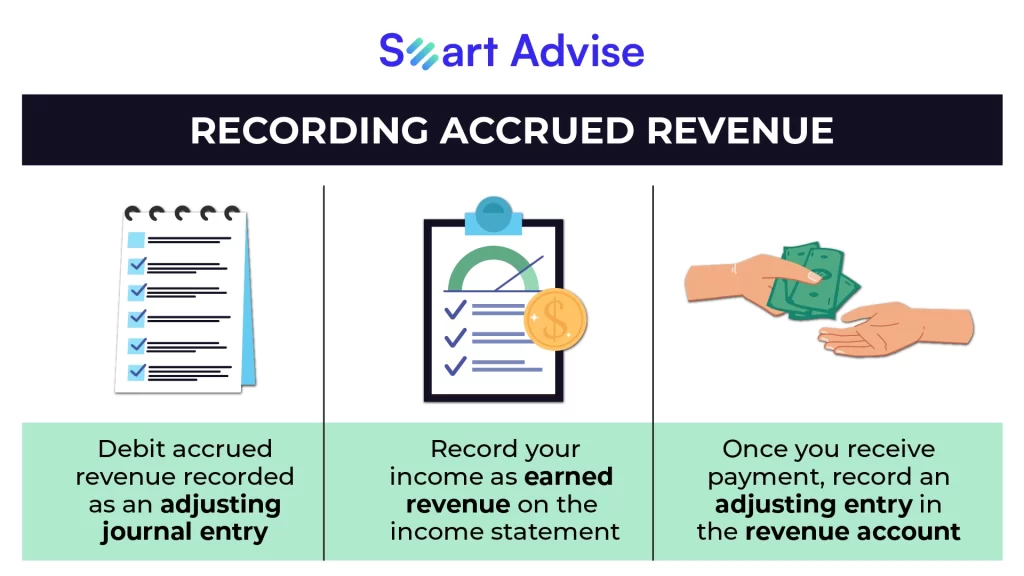
Learn the intricate tie between accrued revenue and decision-making, recognizing its frequently underestimated yet critical role in both theory and practice
In making business strategy, decision-making stands as the linchpin that guides businesses toward success. Amid the myriad factors influencing these decisions, accrued revenue stands as a critical and often underestimated element, particularly within the intricate field of market research. Further we will meticulously learn about the profound interplay between accrued revenue and decision-making in market research, shedding light on its implications through theoretical perspectives, and practical applications too, let’s begin with…
Understanding Accrued Revenue
Accrued revenue, a financial concept signifying the recognition of revenue before actual cash receipt, plays a pivotal role in shaping the financial health of businesses, especially in market research. This recognition occurs when goods or services are delivered, yet payment remains pending. Within the market research domain, accrued revenue is frequently associated with subscription-based models, long-term contracts, or services where revenue accrues over an extended period.

The Market Research Complexity
Market research serves as the compass guiding businesses through the multifaceted landscapes of consumer behavior, industry trends, and competitive environments. Decision-makers heavily rely on timely and accurate information derived from market research to formulate effective strategies, allocate resources judiciously, and maintain a competitive edge. Accurate revenue forecasting, facilitated by a comprehensive understanding of accrued revenue, becomes a crucial component in this decision-making process.
The Intricate Impact of Accrued Revenue on Decision-Making
Resource Allocation
Accurate revenue recognition enables decision-makers to allocate resources effectively. For example, a market research project with significant accrued revenue might warrant increased investment in personnel, technology, or marketing to ensure its success.
Risk Mitigation
Understanding accrued revenue allows businesses to identify potential risks associated with delayed payments. Decision-makers can then implement risk mitigation strategies, such as diversifying revenue streams or adjusting credit terms, to safeguard against financial uncertainties.
Strategic Planning
Accrued revenue data plays a pivotal role in strategic planning. Decision-makers leverage this information to assess the financial viability of long-term market research projects and align them with broader organizational goals. Whether expanding into new markets or launching innovative products, a comprehensive understanding of accrued revenue is indispensable.
Theoretical Considerations in Accrued Revenue and Decision-Making
Financial Sustainability
Theoretical models emphasize that a robust understanding of accrued revenue fosters financial sustainability. Decision-makers who integrate this perspective into their strategic thinking can ensure the continuous funding of market research initiatives, sustaining the organization’s long-term viability.
Time Value of Money
The concept of the time value of money asserts that a dollar today is worth more than a dollar in the future. Decision-makers in market research must consider the time dimension of accrued revenue, recognizing its present value and factoring this into strategic planning to maximize the impact of financial decisions.
Opportunity Cost Analysis
Theoretical frameworks advocate for a meticulous analysis of opportunity costs associated with accrued revenue. Decision-makers need to weigh the benefits of recognizing revenue early against the potential costs, guiding them to make informed choices that align with broader organizational objectives.
Facts and Figures
Let’s take a look at some numbers that elucidate the impact of accrued revenue on decision-making in market research.
Global Market Research Spending Trends
According to theoutbox.com businesses globally spend between 5% and 20% of their yearly sales on R&D. Accrued revenue, being a key financial indicator, is instrumental in shaping decisions related to budget allocation, investment strategies, and overall financial planning for market research endeavors.
Subscription-Based Models
Data from Statista states that, the market volume of the digital subscription economy globally amounted to 650 billion U.S. dollars in 2020. This shift underscores the importance of accrued revenue, as decision-makers must navigate the nuances of recognizing revenue over the subscription period.
Impact of COVID-19 on Market Research Revenue
The pandemic has brought unique challenges to the market research industry. According to Marketing week, 21 % of marketers projected reductions in spending during the 1st quarter of 2020. This figure hit a low of 42.2% in the 2nd quarter and only recovered marginally, to 32.6%, in the 3rd quarter.
Decision-makers, armed with accrued revenue insights, were better equipped to adapt their strategies, pivot focus areas, and weather the storm.
Emerging Market Dynamics
A comprehensive study by Capgemini highlights that a large proportion of customers (79%) have changed their shopping choices depending on sustainability and ethical value of the product. Decision-makers armed with accrued revenue insights can proactively tailor market research initiatives to align with these emerging trends, ensuring the relevancy and success of their endeavors.
Conclusion
Accrued revenue transcends its role as a mere financial metric; it emerges as a strategic tool empowering decision-makers within the expansive domain of market research. By providing insights into future revenue streams, risks, and strategic opportunities, accrued revenue data enables businesses to chart a course for sustainable growth. As the market research industry continues to evolve, decision-makers acknowledging the impact of accrued revenue on their processes will undoubtedly be better positioned to navigate uncertainties and capitalize on emerging trends.
Using accrued revenue as a vital aspect of the decision-making toolkit is not just a financial best practice; it is a strategic imperative for businesses striving to thrive in a competitive business ecosystem. To get more such detailed introspect of the industry connect with us at Smart Advise now!